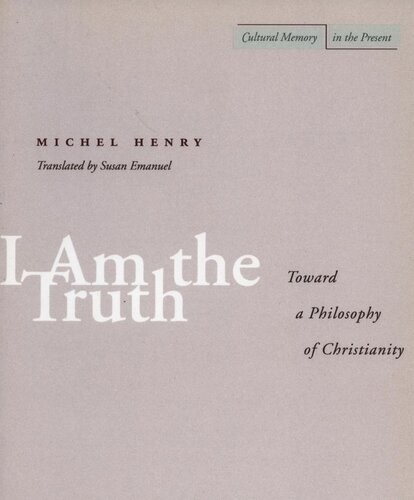

Most ebook files are in PDF format, so you can easily read them using various software such as Foxit Reader or directly on the Google Chrome browser.
Some ebook files are released by publishers in other formats such as .awz, .mobi, .epub, .fb2, etc. You may need to install specific software to read these formats on mobile/PC, such as Calibre.
Please read the tutorial at this link: https://ebookbell.com/faq
We offer FREE conversion to the popular formats you request; however, this may take some time. Therefore, right after payment, please email us, and we will try to provide the service as quickly as possible.
For some exceptional file formats or broken links (if any), please refrain from opening any disputes. Instead, email us first, and we will try to assist within a maximum of 6 hours.
EbookBell Team

4.8
54 reviewsA part of the “return to religion” now evident in European philosophy, this book represents the culmination of the career of a leading phenomenological thinker whose earlier works trace a trajectory from Marx through a genealogy of psychoanalysis that interprets Descartes’s “I think, I am” as “I feel myself thinking, I am.” In this book, Henry does not ask whether Christianity is “true” or “false.” Rather, what is in question here is what Christianity considers as truth, what kind of truth it offers to people, what it endeavors to communicate to them, not as a theoretical and indifferent truth, but as the essential truth that by some mysterious affinity is suitable for them, to the point that it alone is capable of ensuring them salvation. In the process, Henry inevitably argues against the concept of truth that dominates modern thought and determines, in its multiple implications, the world in which we live. Henry argues that Christ undoes “the truth of the world,” that He is an access to the infinity of self-love, to a radical subjectivity that admits no outside, to the immanence of affective life found beyond the despair fatally attached to all objectifying thought. The Kingdom of God accomplishes itself in the here and now through the love of Christ in what Henry calls “the auto-affection of Life.” In this condition, he argues, all problems of lack, ambivalence, and false projection are resolved.